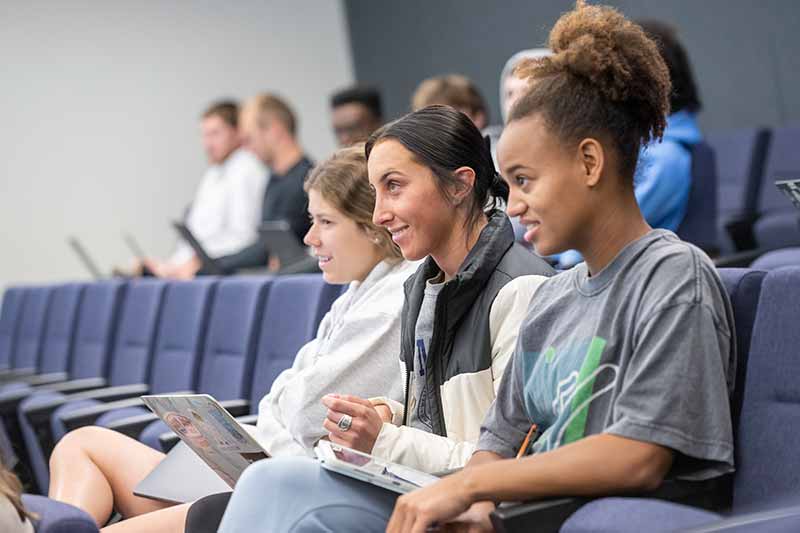Department of Physics
About the Department
The aim of the Department of Physics is to help students develop an understanding of the fundamental laws and behaviors of the physical universe and to practice the techniques used by scientists in acquiring such an understanding. As practiced today, Physics quite commonly relies on the use of computer models to solve problems. Our majors are introduced computer techniques from the very first week in Principles of Physics I, build their skills in Principles of Physics II, and then strengthens those skills with our Computational Physics course.
A physics major can prepare a student for a wide range of careers. Nationally, the most common job title for someone with a degree in Physics is Engineer. Westminster students might get jobs in the engineering field, either directly after graduation from our 4-year physics degree program, after completing a master’s program in a specific engineering field following their degree here, or after the completion of the 3-2 engineering program. Other graduates remain active in the physics field itself, usually after completing a Ph.D. in physics after their time at Westminster, and become research scientists at a national lab, medical physicists, astronomers, or college professors. Still others become high school teachers or have careers that require the application of mathematics to solve real-world problems, such as data scientists, financial analysts, or consultants.
Majors, Minors & Programs

Experiences & Opportunities
At Westminster, learning isn’t limited to the classroom. In each of our 50+ majors and pre-professional programs, your education will be enhanced by the purposeful combination of expert classroom instruction and hands-on learning opportunities. Internships, undergraduate research and studying abroad are just a few of the real experiences our students get that lead to real success after graduation.
Faculty & Academic Staff
Teachers, researchers, experts, mentors...our faculty members are all these things and more to their students. They trained in universities around the globe, but they chose to teach and conduct research at Westminster because of the focus on student development and success. Their dedication to mentoring and teaching is evident in our students’ success when it comes to graduation rates, post-graduation employment and graduate and professional school acceptance.

School of Physical & Mathematical Sciences News, Stories & Spotlights
View More School of Physical & Mathematical Sciences News, Stories & Spotlights







